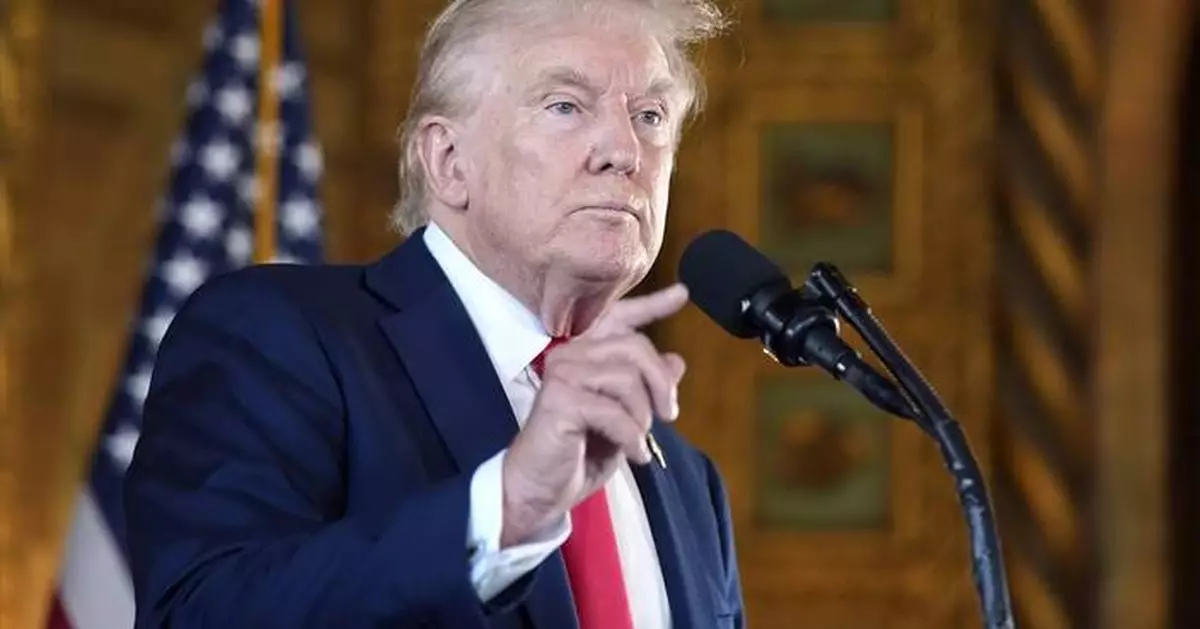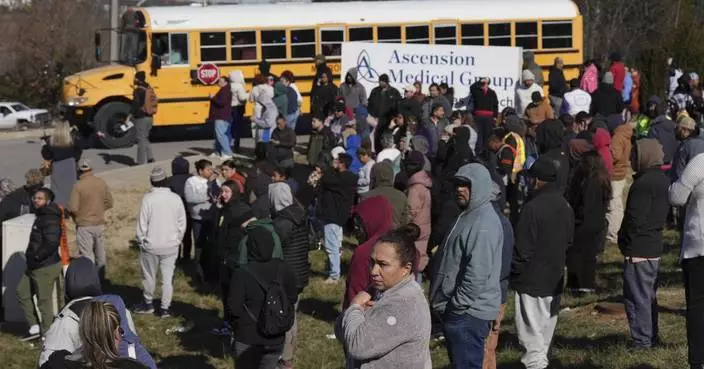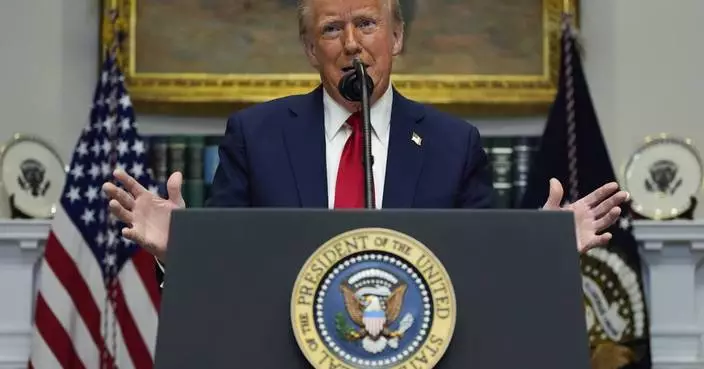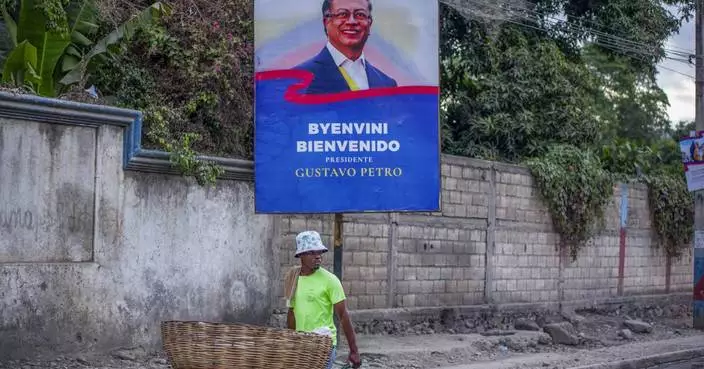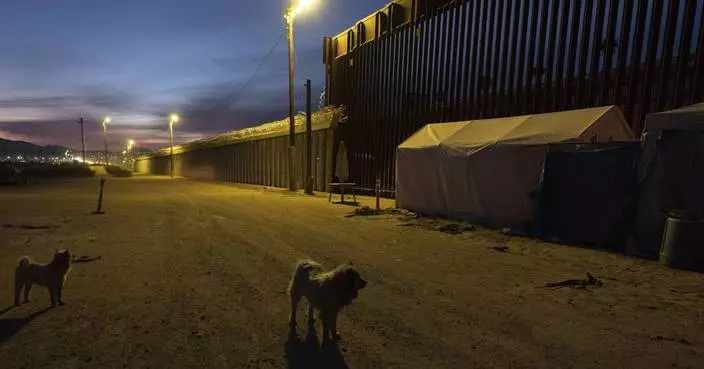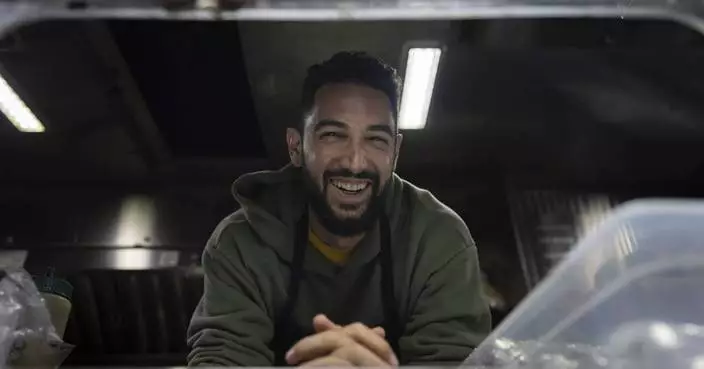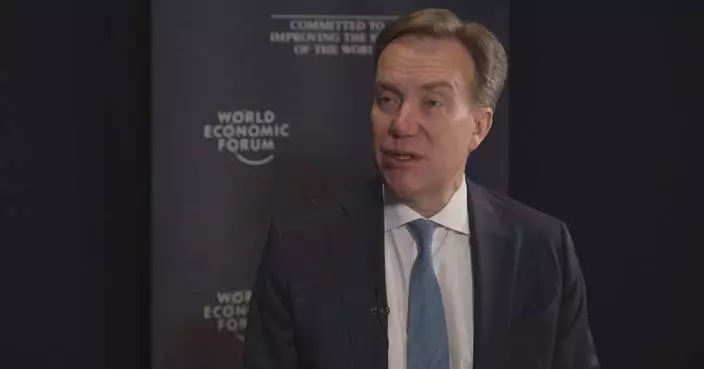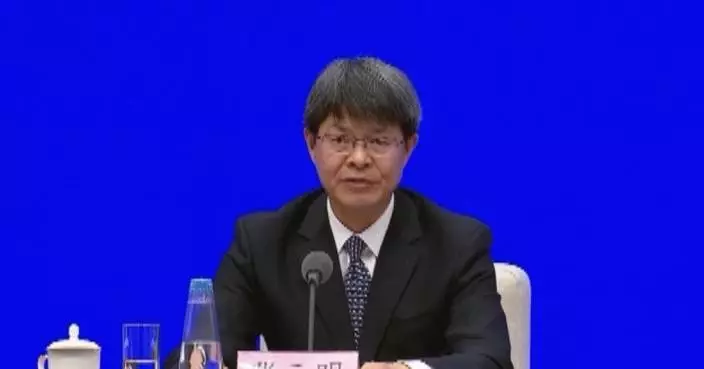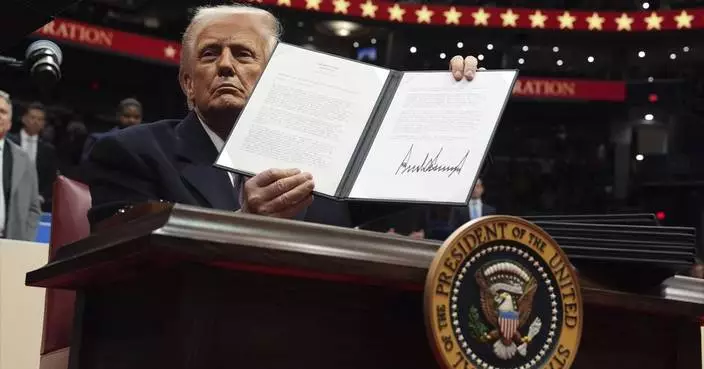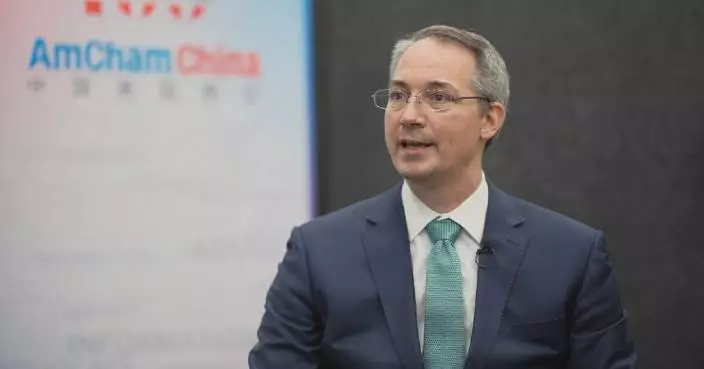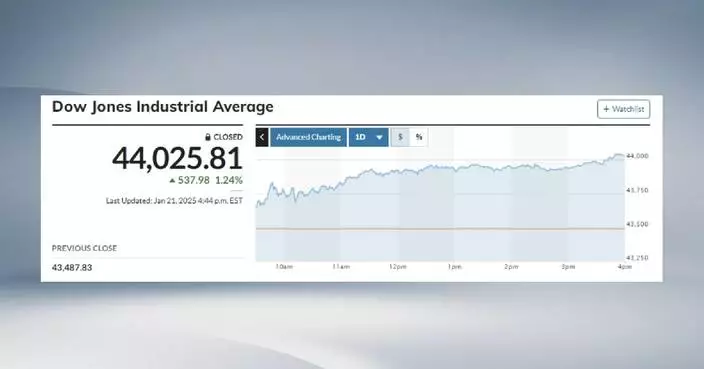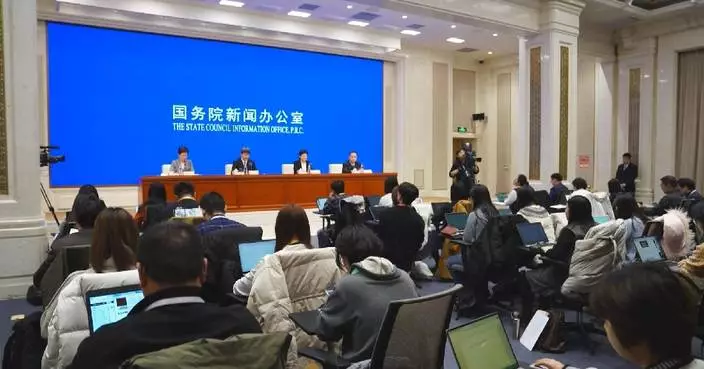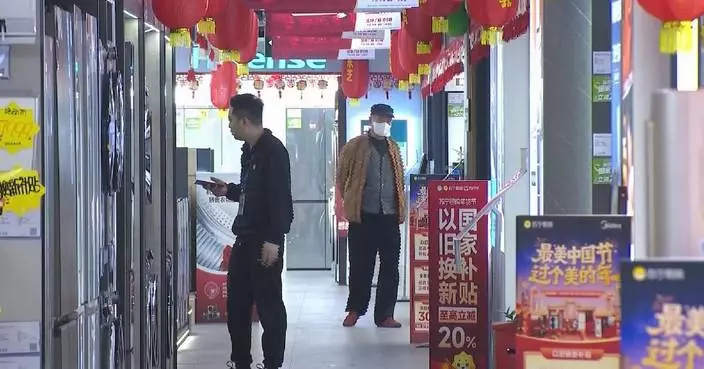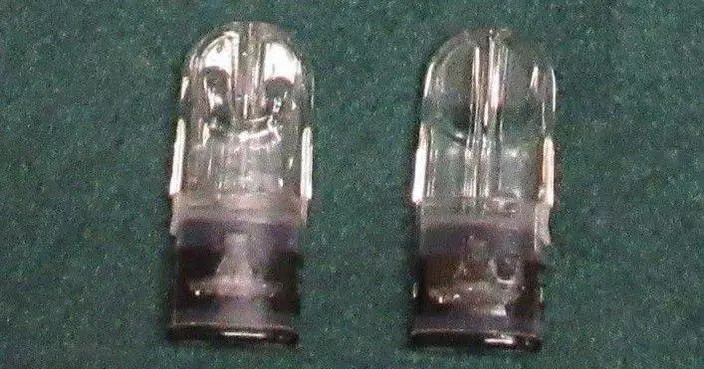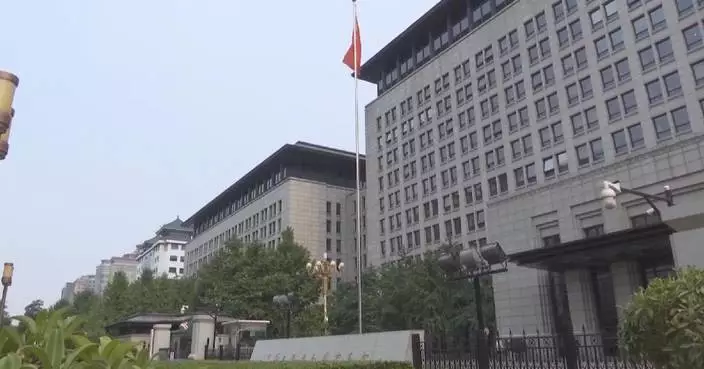ATLANTA (AP) — A year after a Georgia grand jury accused Donald Trump and others of illegally trying to overturn the 2020 presidential election in the state, the case has stalled with no chance of going to trial before the end of this year.
When Fulton County District Attorney Fani Willis secured the indictment a year ago Wednesday, it was the fourth and most sprawling of the criminal cases against the former president. Trump narrowly lost Georgia to Democrat Joe Biden, and Willis used Georgia's anti-racketeering law to allege that he and 18 others had participated in a wide-ranging scheme to subvert the will of the state's voters.
Willis' team notched some early victories in the case, but explosive allegations raised by one of Trump's co-defendants early this year have caused a delay and could even derail the prosecution.
Here are some things to know about the case.
Nearly 100 pages long, the indictment included 41 criminal counts against Trump and 18 others. High-profile people charged along with the former president include his White House chief of staff Mark Meadows, former New York City mayor Rudy Giuliani and conservative attorney Sidney Powell.
All of the defendants were charged with violating the state’s anti-racketeering law and the indictment includes 161 alleged acts to support that charge. The narrative put forth by prosecutors alleges multiple people committed separate crimes to accomplish a common goal — challenging Trump's electoral loss.
The indictment includes charges related to a Jan. 2, 2021, phone call between Trump and Georgia Secretary of State Brad Raffensperger during which Trump urged the state's top elections official to help him “find” the votes he needed to win. Other charges have to do with a getting a slate of Republican electors to falsely declare that Trump won the state, allegations of harassment of a Georgia election worker and a breach of election equipment in a rural south Georgia county.
The judge overseeing the case in March dismissed six counts in the indictment, including three of the 13 counts against Trump. Fulton County Superior Court Judge Scott McAfee wrote that prosecutors had failed to provide enough detail about the alleged crime in those counts. Willis' team has appealed that ruling.
When Trump arrived in Atlanta last August to be booked on the charges against him, he was quickly released on bond. But his brief stop at the Fulton County Jail marked the first time that a former president has had to sit for a mug shot.
While Trump and the others indicted all had to be booked at the jail, they waived their first court appearances. While his lawyers have been present and made arguments at numerous hearings over the last year, Trump has yet to set foot in a Georgia courtroom.
Four of the 18 people charged along with Trump in Georgia pleaded guilty to lesser charges after reaching plea deals with prosecutors within a few months of the indictment.
Bail bondsman Scott Hall pleaded guilty to misdemeanor charges in September. Prosecutors had accused him of participating in a breach of election equipment in rural Coffee County.
The following month, Powell and lawyer Kenneth Chesebro each pleaded guilty. Powell was also accused in the Coffee County breach, while Chesebro had helped organize the Republican elector plan. The two of them reached deals with prosecutors just before they were scheduled to go to trial, having asserted their rights to a speedy trial.
Days later, attorney Jenna Ellis, a vocal part of Trump's reelection campaign in 2020, entered a tearful guilty plea.
In early January, a lawyer for co-defendant Michael Roman, a Trump campaign staffer and onetime White House aide, alleged in a court filing that Willis had improperly engaged in a romantic relationship with lawyer Nathan Wade, whom she had picked to lead the prosecution against Trump and the others.
The court filing alleged that Willis benefitted financially from the case since Wade used his earnings to take her on trips. It said that caused a conflict of interest and that Willis and her office should be removed from the case. Willis and Wade acknowledged the relationship but said they had split travel and other costs.
During an extraordinary hearing, intimate details of Willis and Wade's personal lives were aired in court and broadcast live on television. Judge McAfee chided Willis for a “tremendous lapse in judgment” but found no conflict of interest that merited her removal, as long as Wade left the case. Wade resigned hours later.
Trump and other defendants have appealed McAfee's ruling. That appeal is currently pending before the Georgia Court of Appeals, which plans to hear arguments in December and then must rule by mid-March. Meanwhile, the appeals court has barred McAfee from taking any further action in the case against Trump and the others participating in the appeal while it is pending.
It's not entirely clear.
Regardless of how the Court of Appeals rules, the losing side will likely ask the Georgia Supreme Court to weigh in. That would cause a further delay if the high court agrees to hear the case.
The general election in November, in which Trump is the Republican nominee for president, provides more uncertainty. Even if the appellate courts ultimately decide that Willis can remain on the case, it seems unlikely she would be able to move forward with the prosecution against Trump while he's president if he wins the election.
Complicating things further, the U.S. Supreme Court last month ruled that former presidents have absolute immunity from prosecution for official acts that fall within their “exclusive sphere of constitutional authority” and are presumptively entitled to immunity for all official acts. They are not protected for unofficial, or private, actions.
Trump's lawyers in Georgia had already filed a motion earlier this year asserting presidential immunity. If Willis is allowed to continue her prosecution at some point, his lawyers will surely use the Supreme Court ruling to argue it should be dismissed.
This story has been corrected to reflect that the filing anniversary of the Georgia election indictment is Wednesday, not Thursday.
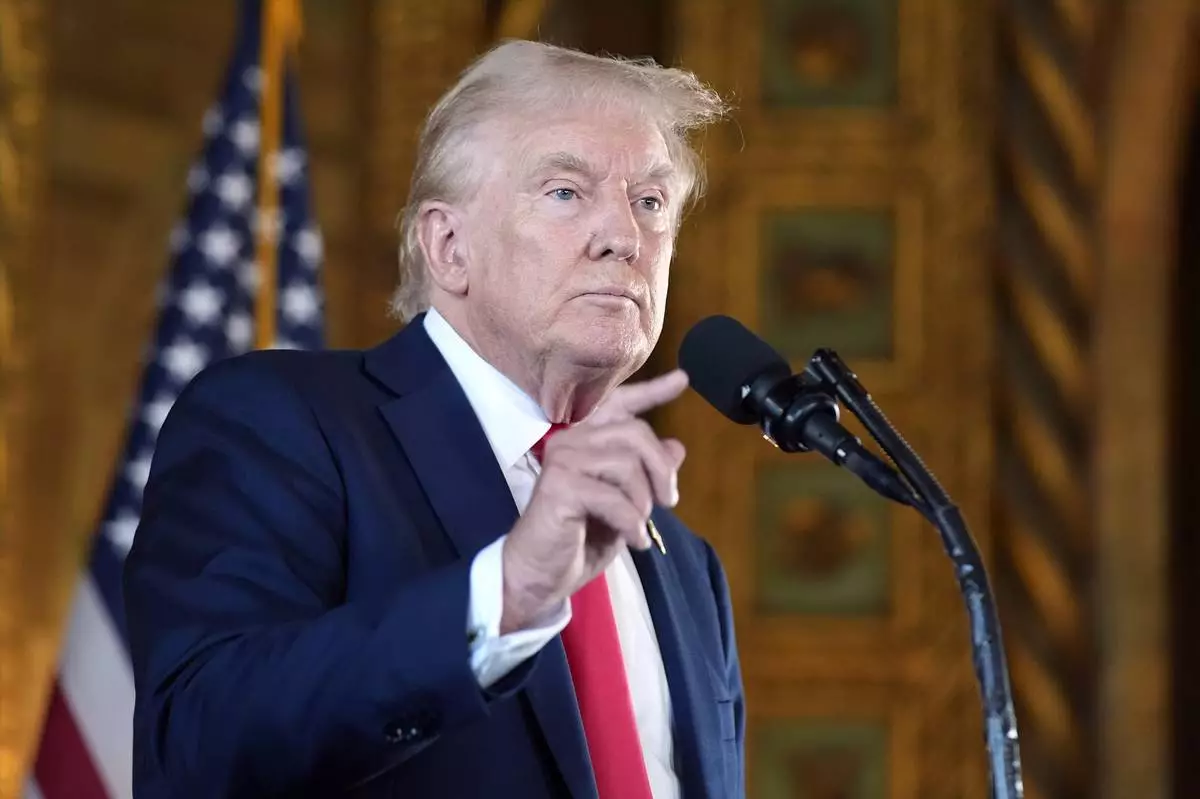
Republican presidential nominee former President Donald Trump speaks to reporters during a news conference at his Mar-a-Lago estate Thursday, Aug. 8, 2024, in Palm Beach, Fla. (AP Photo/Alex Brandon)
ROME (AP) — Human rights groups voiced outrage Wednesday after Italy released a Libyan warlord on a technicality, after he was arrested on a warrant from the International Criminal Court accusing him of war crimes and crimes against humanity.
The Hague-based court, for its part, issued a more diplomatic response but its anger appeared evident. In a stern statement late Wednesday, the ICC reminded Italy that it is obliged to “cooperate fully” with its prosecutions and said it was still awaiting information about what exactly Rome had done.
The reaction came after the Italian government on Tuesday released and sent back home Ossama Anjiem, also known as Ossama al-Masri, who heads the Tripoli branch of the Reform and Rehabilitation Institution, a notorious network of detention centers run by the government-backed Special Defense Force.
Al-Masri had been arrested Sunday in Turin, where he reportedly had attended the Juventus-Milan soccer match the night before. The ICC warrant, dated the day before, accused al-Masri of war crimes and crimes against humanity committed in the Mitiga prison in Libya starting in 2015 that are punishable with life in prison.
The ICC said he was accused of murder, torture, rape and sexual violence. It said the warrant was transmitted to member states on Saturday, including Italy, and that the court had also provided real-time information that he had entered Europe.
The court said it had reminded Italy at the time to contact it “without delay” if it ran into any problems cooperating with the warrant.
But Rome’s court of appeals ordered al-Masri freed Tuesday, and he was sent back to Libya aboard an aircraft of the Italian secret services, because of what the appeals court said was a procedural error in his arrest. The ruling said Justice Minister Carlo Nordio should have been informed ahead of time, since the justice ministry handles all relations with the ICC.
The ICC said it had not been given prior notice of the Rome court's decision, as required, and “is seeking, and is yet to obtain, verification from the authorities on the steps reportedly taken.”
Al-Masri returned to Tripoli late Tuesday, received at the Mitiga airport by supporters who celebrated his release, according to local media. Footage circulated online showed dozens of young men chanting and carrying what appeared to be al-Masri on their shoulders.
“This is a stunning blow to victims, survivors and international justice and a missed opportunity to break the cycle of impunity in Libya,” said Amnesty International’s Esther Major, deputy director of research for Europe.
Nordio appeared in the Senate on Wednesday for a previously-scheduled briefing, and was grilled by outraged opposition lawmakers who demanded clarity about what happened. Former Premier Matteo Renzi accused the right-wing government of hypocrisy given its stated crackdown on human traffickers.
“But when a trafficker whom the International Criminal Court tells us is a dangerous criminal lands on your table, it’s not like you chase him down, you brought him home to Libya with a plane of the Italian secret services,” said Renzi of the Italia Viva party. “Either you’ve gone crazy or this is the image of a hypocritical, indecent government.”
The Democratic Party demanded Premier Giorgia Meloni respond specifically to parliament about the case, saying it raised “grave questions” given the known abuses in Libyan prisons for which al-Masri is accused. Nordio didn't respond.
Italy has close ties to the internationally recognized government in Tripoli, on whom it relies to patrol its coasts and prevent waves of migrants from leaving. Any trial in The Hague of al-Masri could bring unwanted attention to Italy’s migration policies and its support of the Libyan coast guard, which it has financed to prevent migrants from leaving.
Human rights groups have documented gross abuses in the Libyan detention facilities where migrants are kept, and have accused Italy of being complicit in their mistreatment.
Two humanitarian groups, Mediterranea Saving Humans and Refugees in Libya, which have documented abuses committed against migrants in Libyan detention facilities, said they were incredulous that Italy let al-Masri go.
David Yambio, a 27-year-old from South Sudan who said he was abused by al-Masri while he was detained at the Mitiga prison in 2019-2020, said he felt betrayed by Italy. Yambio, who eventually escaped from the prison and arrived in Italy on a smuggler’s boat in 2022, said he had a “fleeting feeling of justice” when he heard that al-Masri had been arrested in Turin.
“Those who waited long before me, the Libyans who are victims of his criminal network, his war crimes, have been wanting for this day to come,” said Yambio, who received asylum and now lives in Modena and runs his Refugees in Libya advocacy group. “But when it came, it was immediately extinguished hours before it could even truly be felt in our hearts.”
But Tarik Lamloum, a Libyan activist working with the Belaady Organization for Human Rights which focuses on migrants in Libya, said Italy’s release of al-Masri was expected. He said his release shows the power of militias who control the flow of migrants to Europe through Libya’s shores.
“Tripoli militias are able to pressure (Italy) because they control the migrants file,” he told The Associated Press.
Militias in western Libya are part of the official state forces tasked with intercepting migrants at sea, including in the EU-trained coast guard. They also run state detention centers, where abuses of migrants are common.
As a result, militias — some of them led by warlords the U.N. has sanctioned for abuses — benefit from millions in funds the European Union gives to Libya to stop the migrant flow to Europe.
The European Commission spokesman reaffirmed all EU members had pledged to cooperate with the court.
“We respect the court’s impartiality and we are fully attached to international criminal justice to combat impunity," said EU commission spokesman Anouar El Anouni. In a 2023 summit, the EU leaders committed “to cooperate fully with the court, including rapid execution of any pending arrests,” he added.
Magdy reported from Cairo. Paolo Santalucia in Rome and Molly Quell in The Hague contributed.
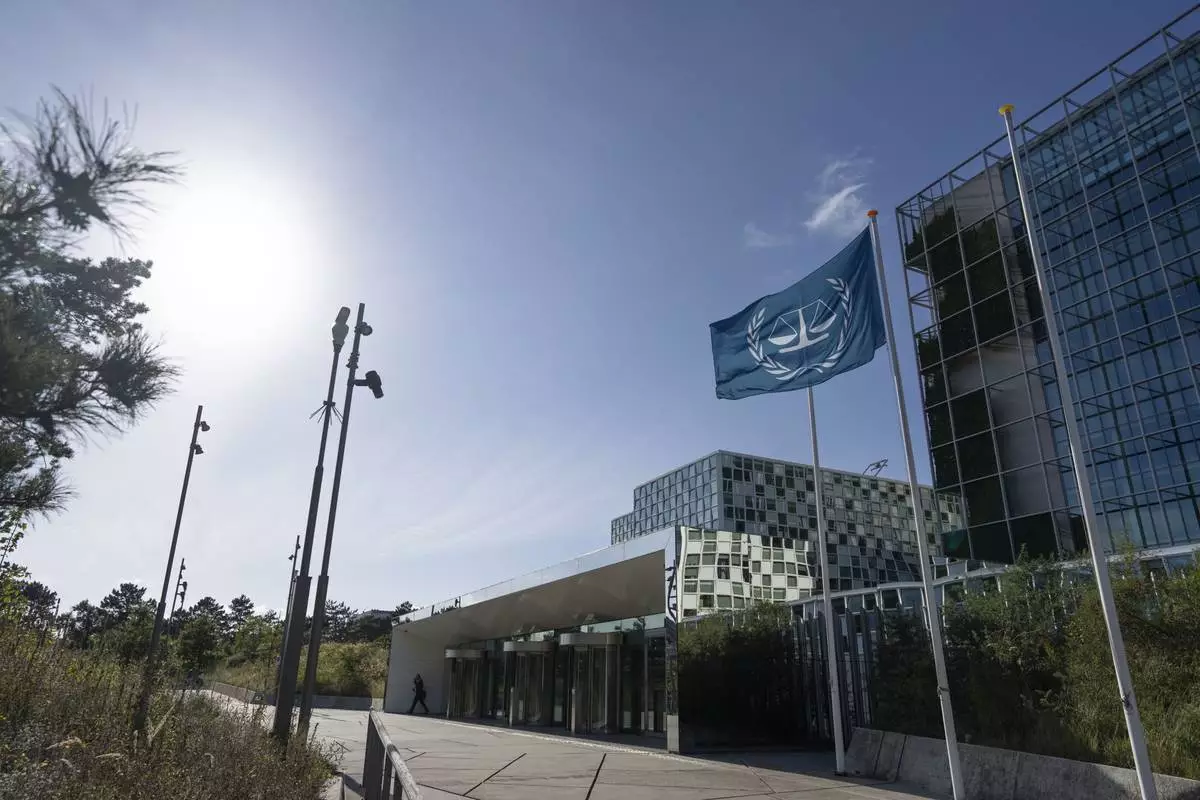
FILE - View of the ICC, the International Criminal Court, in The Hague, Netherlands, Monday, Sept. 16, 2024. (AP Photo/Peter Dejong, File)
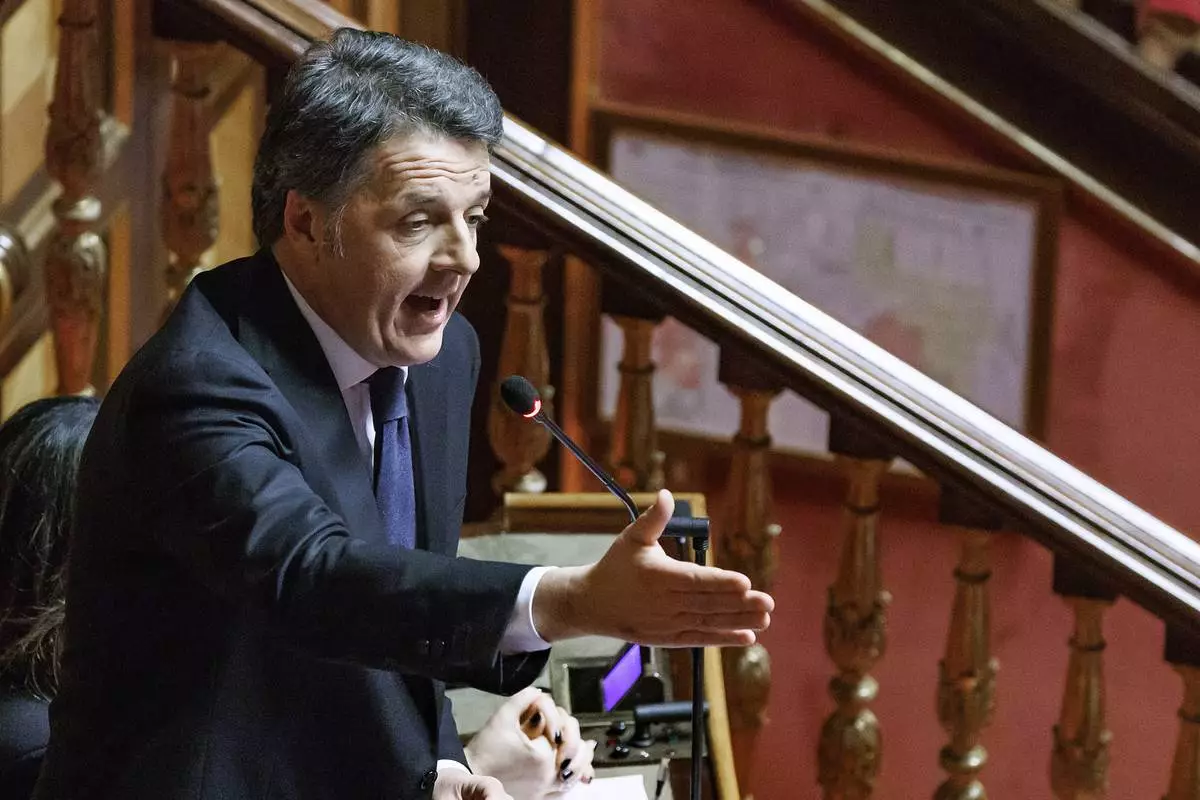
Former Prime Minister Matteo Renzi makes his remarks during Justice Minister Carlo Nordio's appearance at the Senate for the report on the justice administration, in Rome, Wednesday, Jan. 22, 2025. (Roberto Monaldo//LaPresse via AP)
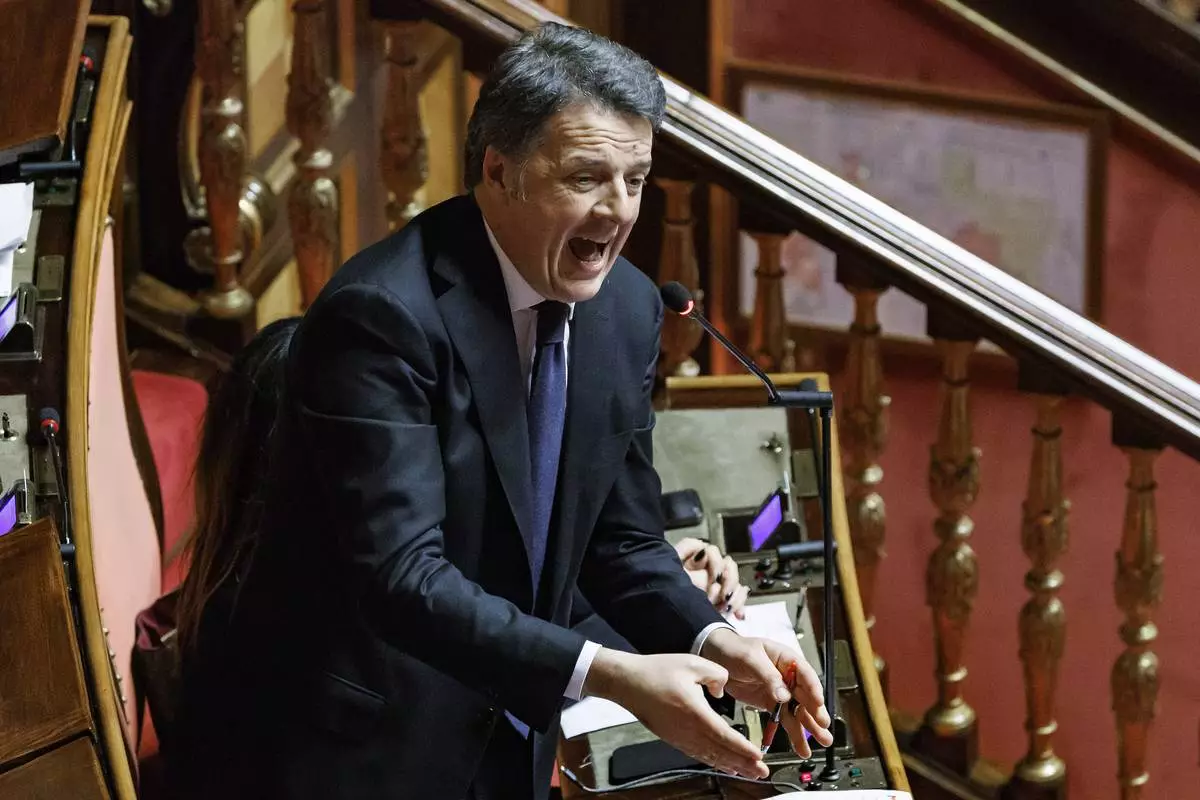
Former Prime Minister Matteo Renzi makes his remarks during Justice Minister Carlo Nordio's appearance at the Senate for the report on the justice administration, in Rome, Wednesday, Jan. 22, 2025. (Roberto Monaldo//LaPresse via AP)
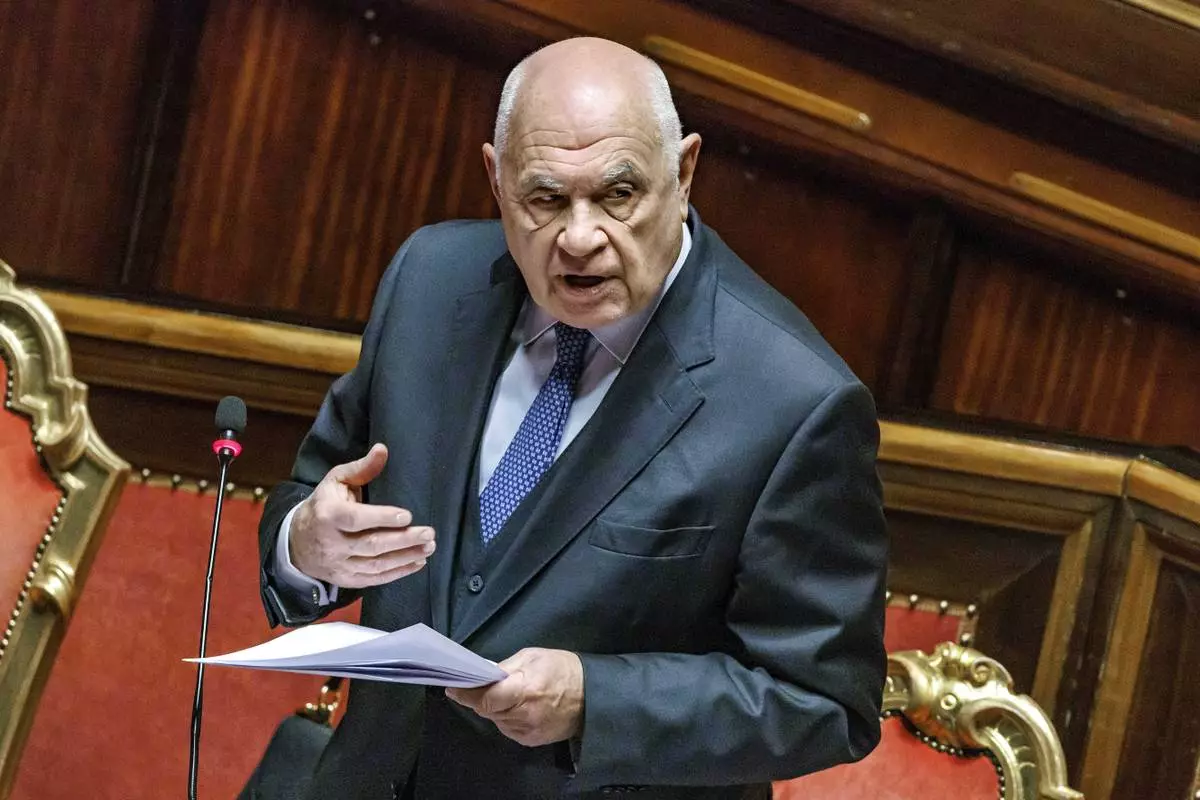
Justice Minister Carlo Nordio addresses the Senate during the report on the justice administration, in Rome, Wednesday, Jan. 22, 2025. (Roberto Monaldo//LaPresse via AP)
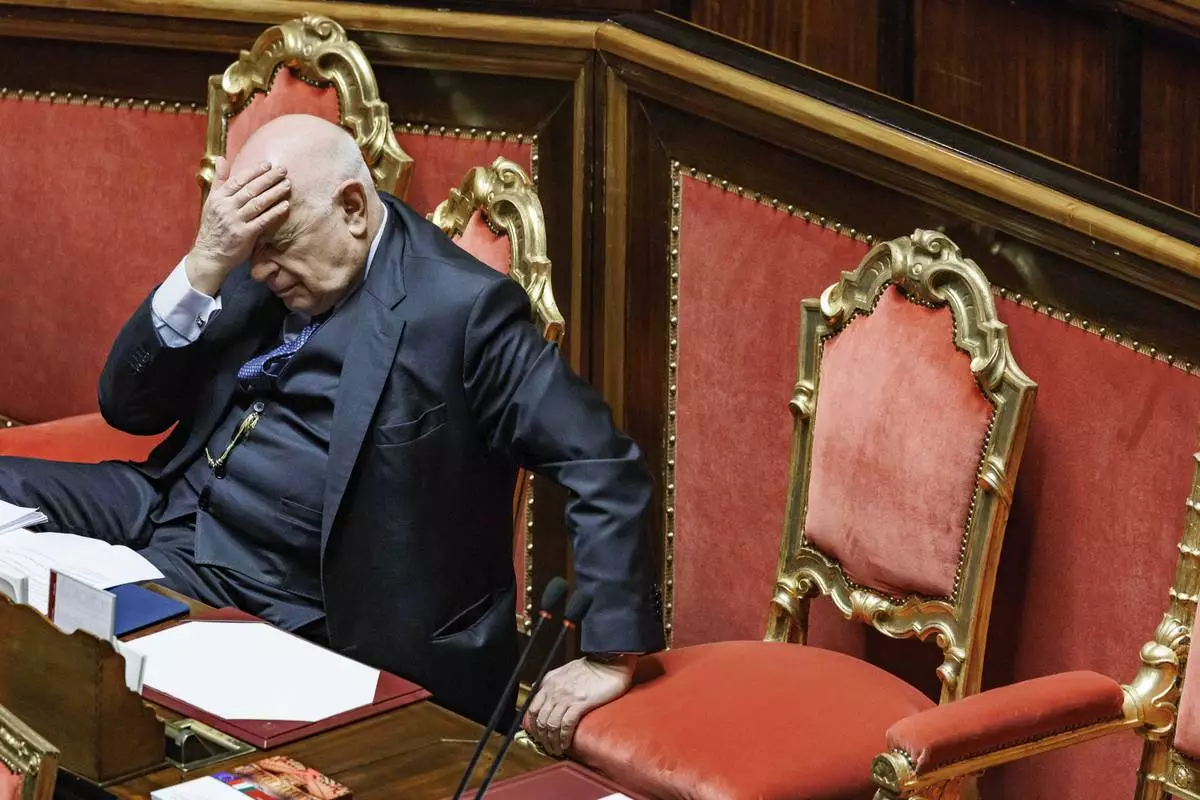
Justice Minister Carlo Nordio puts his hand to his head during the presentation of the report on the justice administration, at the Senate, in Rome, Wednesday, Jan. 22, 2025. (Roberto Monaldo//LaPresse via AP)
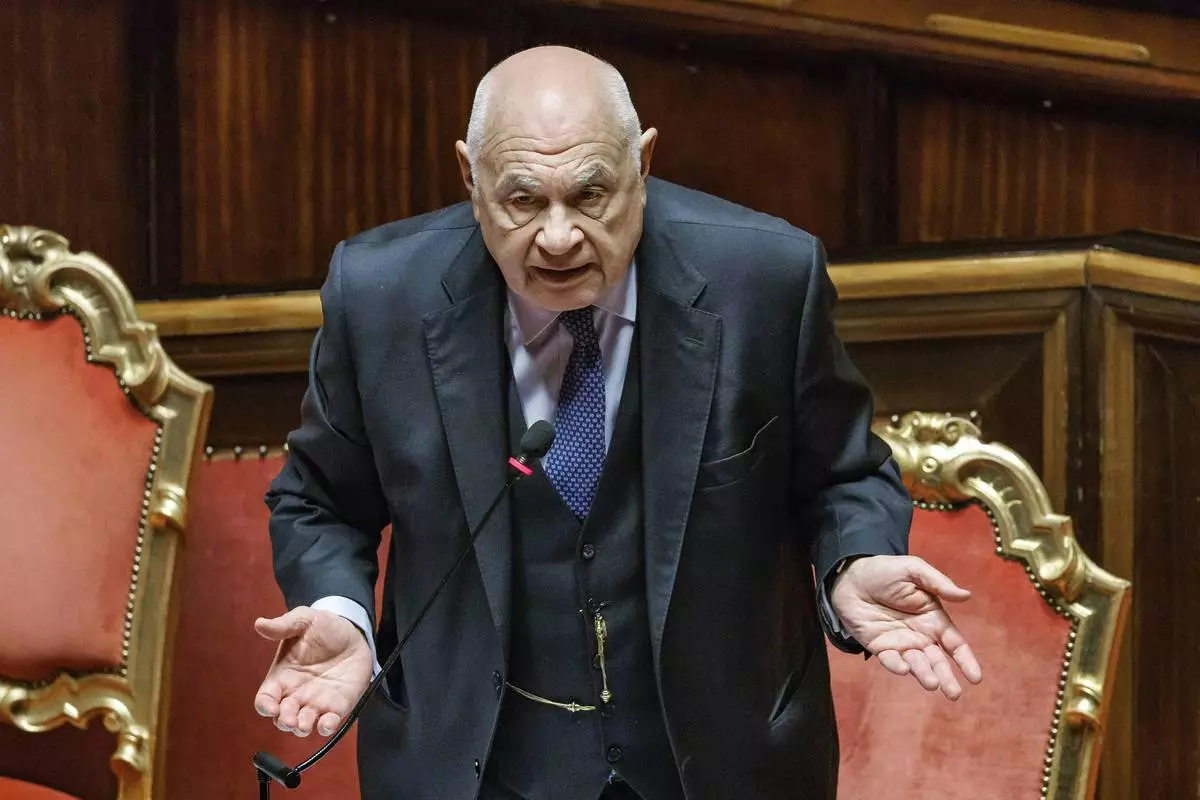
Justice Minister Carlo Nordio addresses the Senate during the report on the justice administration, in Rome, Wednesday, Jan. 22, 2025. (Roberto Monaldo//LaPresse via AP)



